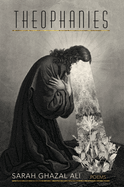
In Theophanies, the poised debut collection from Muslim poet Sarah Ghazal Ali, spiritual enlightenment is a female, embodied experience, mediated by matriarchs.
A theophany is an appearance of God to people. But Ali is as likely to see the holy in earthiness. Her poems hymn women's bodies, desire, and motherhood. She blurs the line between human and divine with allusions to the Quran: in "Self Portrait as Epiphany," she twists a quotation about the Creation, applying it to menstruation as a sign of women's ability to birth life. "Between my legs/ a clot. From a clot/ I'll make men." "Magdalene" objects to received wisdom that is effectively religion-sanctioned misogyny: "We bleed as penance for the curious first" and "Doesn't Islam mean submission? The subordinate to God/ conveniently elided." There are also elegies for two Muslim American women who were sexually assaulted and murdered.
Ali's ambivalence toward faith is clear in alliteration-rich verse that recalls Kaveh Akbar's: "What I believe bewilders me," she confesses. "Often I confuse theophany & theophagy," being "Too stubborn/ to supplicate." And yet the matriarchs of the Abrahamic faiths loom large. "Mother of Nations" is about her namesake--Abraham's wife, Sarah. "Epistle: Hajar," closing the collection on a plaintive note, gives voice to his exiled concubine. "Matrilineage [Parthenogenesis]" is shaped as a family tree, one composed solely of key women from Islamic history.
Wordplay, floral metaphors, and multiple ghazals make for dazzling language. Ali's poetry, both elegant and visceral, gives women's bodily and spiritual experiences primacy. --Rebecca Foster, freelance reviewer, proofreader and blogger at Bookish Beck

